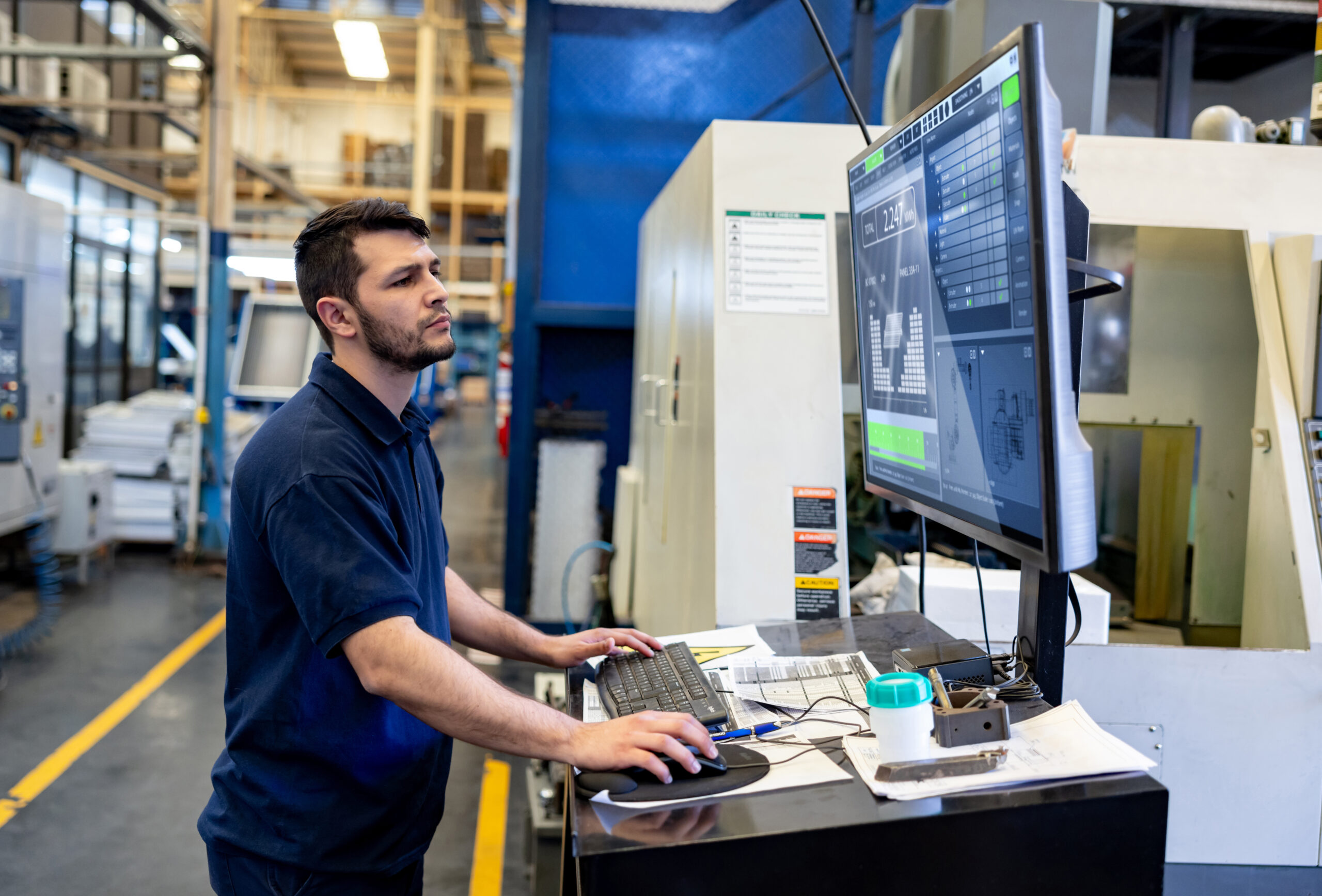
It’s a tough time to be leading any business right now — including a manufacturing business.
Uncertainty abounds, and knowing what the future will bring, and when the current COVID-19 crisis will subside, is still up in the air.
The harsh reality is that uncertainty is always present, and takes various forms, whether it is the current Coronavirus crisis, trade tensions, environmental concerns, or political unrest.
Companies that learn to plan for uncertainty, can better handle disruption and change, and will emerge from the current situation better than those that can’t and don’t.
Read on to learn how you can turn your business into one that is prepared to weather the storm.
Don’t get defensive, get smart
t’s human nature to want to bury our heads in the sand, ignore and deny what is happening, and not deal with the uncertainty or change around us.
While this strategy may work when everything is fine, it won’t when things suddenly get turned haywire — like the current COVID-19 crisis and its economic fallout. It’s also an attitude that won’t help your business prepare for this, or other future upheavals and crises.
You need to prioritize making contingency plans and disaster prepared plans. Hopefully you won’t need to use them, but you will have them on hand to rely on if needed. And just as you can’t prepare for every scenario or outcome, having plans in place can be used as a starting point for future crises, making it easier to be prepared for future unknowns.
It’s important to keep your core business lines strong, and have strategies in place to deal with disruption, so you can keep production running smoothly.
For example, you won’t know what might bring about a disruption to your supply chain — trade tensions, global pandemic, or natural disaster — but having a plan in place for how to deal with this disruption can help you when the time comes.
But it’s also important to be open to new ideas and opportunities, and to see where you can make changes that will keep your business strong.
Steering a business through a time of uncertainty is not easy. It requires making tough decisions and you may have to move into survival mode for a while. But it can be done successfully if you are prepared and open, and approach it strategically.
Think about how you can diversify your investments
A good way to prepare for uncertainty is to plan for multiple outcomes, and have strategies in place to address and capitalize on each one. Talk about finding new avenues and strategies to explore and think about ways you may be able to diversify your business, or bring in new streams of revenue now, so you can be prepared when the time comes.
And instead of trying to guess what’s going to happen next, place as many small bets as you can on multiple outcomes that are within your control.
This can include shoring up how your customers perceive your brand, your company, and your products, how you motivate your employees to keep morale and productivity high in uncertain times, and where you can expand into untapped markets — all of which will help you through a crisis.
When it comes to your products or services specifically, focus on the improvements you think the market will demand, and experiment with pricing and new marketing strategies.
Will you make mistakes and place a losing bet? Sometimes. But you won’t succeed without trying. Putting in the time now (or better yet — before a crisis starts) will put you in better shape, and better able to come through the other side.
Look for where there are gaps or opportunities
Manufacturing companies that have been able to shift their business lines and produce products that are needed during the current crisis have been able to keep their doors open, employees on the job — and at the same time create necessary equipment needed to help us through this crisis.
Companies that have been able to shift some, or all production lines to produce PPE (personal protective equipment) or hand sanitizer have been able to fill much needed supply gaps, and keep operations running at full capacity.
For example, Machitech, a manufacturer of automated cutting equipment based in Quebec was able to turn two CNC Routers that were normally used for customer demos into making anti-contagion shields for front-line workers. They also partnered with a local 3D printing company, and shared resources, to print protective visors.
By thinking outside the box, and deciding what resources could be turned towards building new products, manufacturers can diversify their business lines — while providing a vital service.
Invest in human capital
During times of uncertainty the knee-jerk reaction is often to reduce staffing levels. But a new direction requires new expertise and energy — and reducing headcounts will make it difficult to climb out of uncertain economic conditions.
There are a lot of shifts ahead for manufacturers as the economy changes and the fallout from the current crisis continues to unfold. Manufacturing will contract in the short-term, but one probable outcome from the Coronavirus is a return of some types manufacturing to domestic shores.
Building the right team now will help you get a jumpstart on the competition when this happens. Investing in training for your employees now will make them more efficient — which will help you weather the current storm — and make you better able to jump on future opportunities.
Invest in solutions for agile operations
We’ve seen a huge spike in the need for remote work lately. Tech forward companies with the right software portfolio were able to transition rather seamlessly. Manufacturing companies still need to have many of their workers on-site, but front-end staff can easily work from home with the right solutions.
Technology solutions, like ERPs will play a crucial role in helping manufacturers adapt to these new and uncertain times. Along with allowing front-office staff to work remotely, ERPs provide manufacturers the needed data and the full visibility to monitor operations remotely and in real-time.
ERPs can also help manufacturers schedule their shops to precision to keep up operational efficiencies. As complete solutions that connect and integrate all aspects of a manufacturing shop, ERPs also give manufacturers the tools they need to handle uncertainty, and manage supply chains that have turned upside down and other disruptions.
Know which of your operations and processes are key to your viability, and invest in robust solutions to ensure they can continue to operate should the nature of your workforce, or inputs to production change.
Be transparent with your workforce
Communication is always important, but during times of uncertainty it is even more necessary. Your staff, like you, will be anxious and on edge. They will be just as worried about the economy and financial forecasts as you, as well as cuts to expenses, salary adjustments, and layoffs.
Keep your employees in the loop and on board with the steps your business is taking. Your staff knows that you are doing whatever it takes to keep the organization afloat and well poised to rebound strong.
Keep lines of communication open, and give your staff timely and consistent updates on your plans. Your staff will thank you for the openness and honesty, and will be more productive and efficient.
Managing uncertainty is never easy. But keep your head in the game and think strategically to put your business in the best possible position.
Get your eBook Scared to implement a new ERP?
"*" indicates required fields



